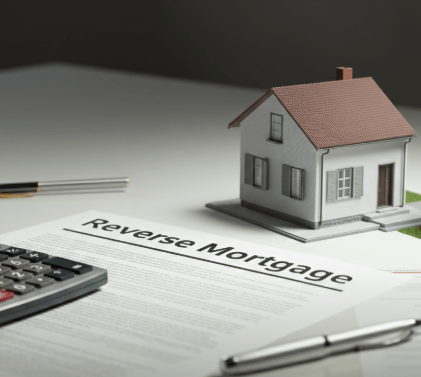Navigating the ins and outs of financial options can be daunting, especially regarding reverse mortgages. If you’re considering incorporating a reverse mortgage into your financial strategy or currently have one, understanding how to pay back a reverse mortgage is crucial for your financial health. Read on as we explore the key points about how to pay back a reverse mortgage, ensuring you are well informed and prepared for the obligations that come with this unique loan product. By the end, you’ll have a clearer view of the payback reverse mortgage process and the steps necessary to manage it effectively.
Steve Daria and Joleigh, seasoned real estate investors, emphasize the importance of understanding the terms of your reverse mortgage before agreeing. They suggest consulting with a financial advisor to navigate potential payback scenarios, ensuring you are prepared for eventualities. Furthermore, keeping an open line of communication with your lender can help clarify any uncertainties and aid in the repayment process when the time comes.
What is a Reverse Mortgage?
A reverse mortgage permits homeowners, typically aged 62 and older, to leverage a portion of their home equity for cash.
Unlike a traditional mortgage, where homeowners make payments to the lender, a reverse mortgage involves the lender making payments to the homeowner.

Key Characteristics
- Equity Conversion: Homeowners can access funds through a lump sum, line of credit, monthly settlements, or a combination of these options.
- Increasing Balance: The loan balance adds up over time due to accrued interest and fees, while the homeowner remains in the home.
- Repayment Triggers: The reverse mortgage becomes due when the homeowner sells the property, moves out for good, or passes away.
Key Features of a Reverse Mortgage
Reverse mortgages have distinct features that set them apart from other financial products.
- Flexibility in Fund Disbursement: Homeowners have the option to receive funds in various ways: a lump sum, a line of credit, monthly payments, or a combination thereof.
- Non-Recourse Loan: Most reverse mortgages are non-recourse loans, meaning homeowners or their heirs will never owe more than the home’s sale value, even if the loan balance goes beyond the property’s worth.
- Property Maintenance Requirements: Homeowners must maintain the property and stay current on insurance and property taxes to avoid foreclosure.
Get An Offer Today, Sell In A Matter Of Days
When Do You Pay Back a Reverse Mortgage?
The timing of repayment for a reverse mortgage is crucial and varies based on specific circumstances.
- Homeowner’s Death: If the homeowner passes away, the heirs typically have six to twelve months to pay back the loan by selling the property or refinancing it.
- Selling the Home: If the homeowner decides to sell the house, the loan must be repaid from the sale proceeds. If the house sells for more than the loan balance, the excess money goes to the homeowner or their heirs.
- Permanent Move: If the homeowner moves out permanently (e.g., into assisted living) and is absent for more than 12 successive months, the loan becomes due. The property must be sold or otherwise settled to repay the loan.
Options to Pay Back a Reverse Mortgage
When it comes time to pay back a reverse mortgage, several options are available.
Each has its advantages and considerations.
- Selling the Home: Selling the home is a straightforward way to repay the reverse mortgage.
- Refinancing the Home: Refinancing with a new mortgage can be an option if the homeowner or heirs wish to retain the property.
- Using Other Funds: Heirs may choose to pay off the reverse mortgage using personal savings or other investments. This option allows them to keep the property without incurring additional debt.
Strategies to Pay Back a Reverse Mortgage
Effectively managing the repayment of a reverse mortgage involves strategic planning.
- Early Financial Planning: Begin planning for repayment early by setting aside savings or investments specifically for this purpose.
- Communication with Lenders: Maintain open communication with the lender about intentions to sell or refinance the property. This can prevent misunderstandings and legal issues.
- Professional Advice: Consult with financial advisors or real estate experts to tailor a repayment plan that suits individual circumstances.
Pros and Cons of Reverse Mortgages
Reverse mortgages offer several benefits but also come with drawbacks that need careful consideration.
Pros
- Supplementing Income: They provide a steady income stream for retirees, which can be crucial for maintaining financial stability without selling the home.
- Non-Recourse Feature: The non-recourse nature of the loan protects homeowners and their heirs from owing more than the home’s value.
Cons
- Reduced Home Equity: Over time, reverse mortgages reduce the home’s equity, potentially leaving less for heirs.
- Costs: There are closing costs, insurance premiums, and loan servicing fees that can accumulate over time.
Tips for Managing a Reverse Mortgage
Managing a reverse mortgage effectively involves staying organized and proactive.
- Record Keeping: Keep detailed records of all communications with lenders, payments received, and any changes to loan terms.
- Property Maintenance: Regularly review property maintenance, including insurance and tax payments, to ensure compliance with loan requirements and prevent foreclosure.
- Professional Guidance: Engage with a trusted real estate or financial advisor to manage the complexities of reverse mortgages.

The Role of Heirs
Heirs have an important role in managing the repayment of a reverse mortgage, especially after the homeowner’s death.
- Repayment Decisions: Heirs must decide whether to sell the property, refinance, or pay off the loan using other resources. Each choice has financial and emotional implications.
- Open Communication: Engage in open discussions with family members and professional advisors to make informed decisions that align with the family’s goals and values.
Frequently Asked Questions
Explore the most common inquiries regarding reverse mortgages and provide key insights to help you navigate the repayment process effectively.
How long do heirs have to pay back a reverse mortgage?
Heirs typically have six to twelve months to settle the loan, although this can vary depending on the lender and loan terms.
Extensions may sometimes be negotiated if necessary.
Can a reverse mortgage be refinanced?
Yes, a reverse mortgage can be refinanced through another reverse mortgage or a traditional mortgage, allowing homeowners or heirs to take advantage of improved rates or terms.
What happens if the home sells for less than the loan balance?
If the home sells for less than the loan balance, the non-recourse nature of most reverse mortgages means that the lender cannot claim more than the home’s sale value.
This protects heirs from having to pay the difference.
Conclusion
Paying back a reverse mortgage involves understanding the various options and strategies available. Whether you are a homeowner, heir, or investor, being informed about the repayment process, common misconceptions, and effective management techniques is crucial. By familiarizing yourself with the key features of reverse mortgages, repayment triggers, and strategic planning, you can navigate this financial product more effectively.
**NOTICE: Please note that the content presented in this post is intended solely for informational and educational purposes. It should not be construed as legal or financial advice or relied upon as a replacement for consultation with a qualified attorney or CPA. For specific guidance on legal or financial matters, readers are encouraged to seek professional assistance from an attorney, CPA, or other appropriate professional regarding the subject matter.

